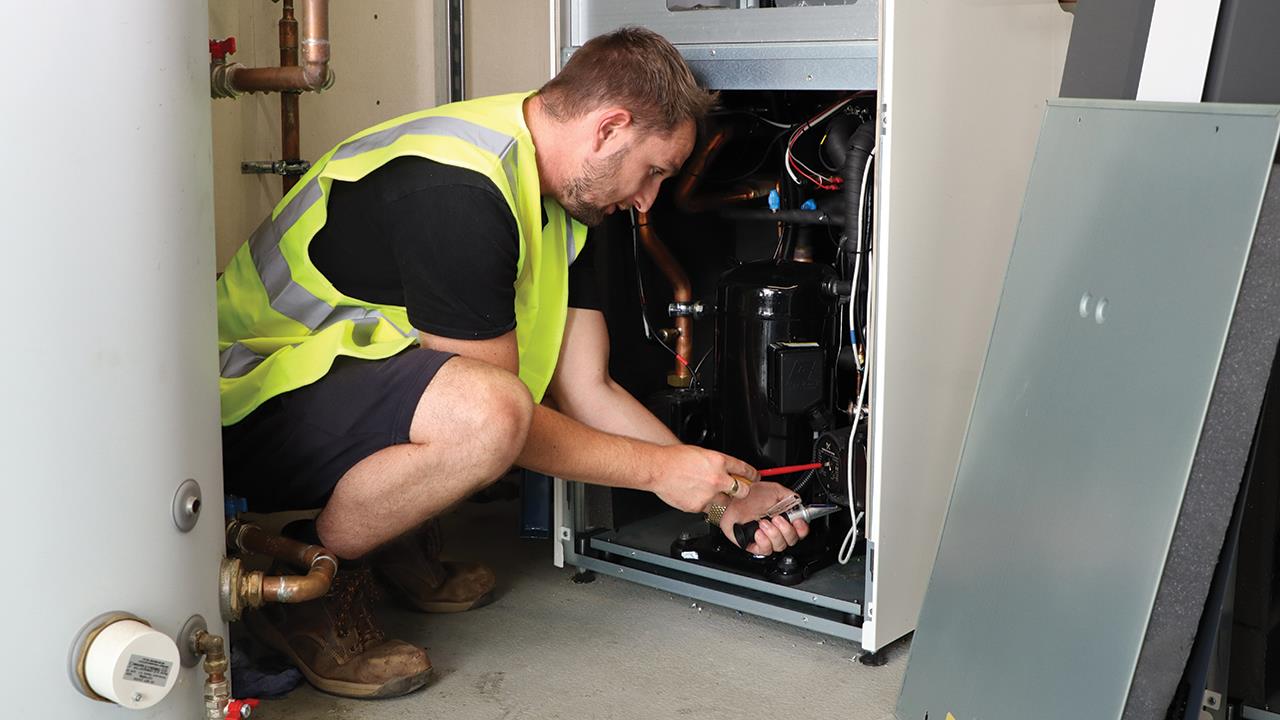

As highlighted by the latest Climate Change Committee (CCC) report criticising the UK’s slow progress towards net-zero, the electrification of heat in the decarbonisation of buildings remains a key priority.
It also presents a considerable opportunity to boost the British economy and create thousands of green jobs. But, as the CCC states, the government needs to shift from ambitious targets to the effective delivery of policies.
At Kensa, we support the government’s climate targets. Recent studies, such as the Low Carbon Heat Study published by Element Energy, demonstrate the benefits of ground source heat pumps in decarbonising buildings, including lower household bills and energy consumption, reduced strain on the electricity grid, and billions saved in energy infrastructure upgrades and investment.
However, we feel strongly that if the UK is to unlock the full benefits of ground source, it is vital that the government sees this technology as a long-term infrastructure investment – a 21st century replacement for the gas grid – and develops policies accordingly to encourage growth, including:
Growing the green economy
The government remains committed to growing the heat pump market in the UK. To meet the 2028 heat pump installation target, the whole industry will have to expand dramatically. There is evidence that supporting the mass deployment of heat pumps will be beneficial for the economy as well as the environment.
The Heat Pump Manufacturing Supply Chain Research Project for the Department of Business, Energy & Industrial Strategy from 2020 suggested that manufacturers could respond under high ambition heat pump deployment scenarios to develop a sufficient domestic supply chain. This study also highlighted the opportunity to establish a significant market share of UK-manufactured heat pumps, particularly ground source, of which Kensa is currently the only British manufacturer.
Widespread heat pump deployment will provide thousands of high quality jobs in the manufacturing and heating sectors. Thousands of skilled heat pump installers will be required in a sector set for rapid and massive growth.
Analysis by the Heat Pump Association suggests that at least 50,200 installers will be needed by 2030, based on a target of one million heat pumps.
If a significant number of those heat pumps came to be manufactured in the UK, a further 15,000 (high-paid) jobs could be created. This job creation opportunity increases when ground source heat pumps, in particular, are installed, with up to 25,000 additional jobs being potentially created in infrastructure provision to support their rollout.
In response to such opportunities, and to help the sector grow, Kensa offers a free, progressive and tailored installer training pathway for anyone looking to learn more about ground source heat pumps.
Installers share experiences of ground source heat pumps
Edward Savage, Owner of EPS Plumbing, Heating & Green Energy: “I started my business in 2012 and knew I wanted to go down the green energy route. Heat pump technology was less well-known back then and we were working with early adopters. Now people’s understanding of heat pumps is much better and the future looks very positive for our business with the volume of installations increasing.
“System design and ground arrays are the main areas where ground source installations differ from traditional gas boilers. Once you have bridged that gap, the benefits are straightforward to explain to the end customer. They are simple and easy to install – I’ve successfully put ground source heat pumps into every type of property imaginable – from flats to massive manor houses.”
Matt Owen, Owner of Home Plumbing & Heating: “I started training as a plumber when I was 17, completing an apprenticeship before quickly setting up my own business, working with gas boilers, oil, and LPG. I found my niche working in large privately-owned newbuild homes which were having heat pumps specified, probably because of the impending gas boiler ban.
“I quickly decided I would learn how to fit this renewable heating technology, as there was obviously a call for it. I’m an early adopter, but I can see that this is the way the industry is going. Ground source heat pumps are a great technology – I would recommend heating and plumbing engineers have a serious look at it and go and speak with manufacturers to find out more.”
If you'd like to keep up-to-date with the latest developments in the heating and plumbing industry, why not subscribe to our weekly newsletters? Just click the button below and you can ensure all the latest industry news and new product information lands in your inbox every week.